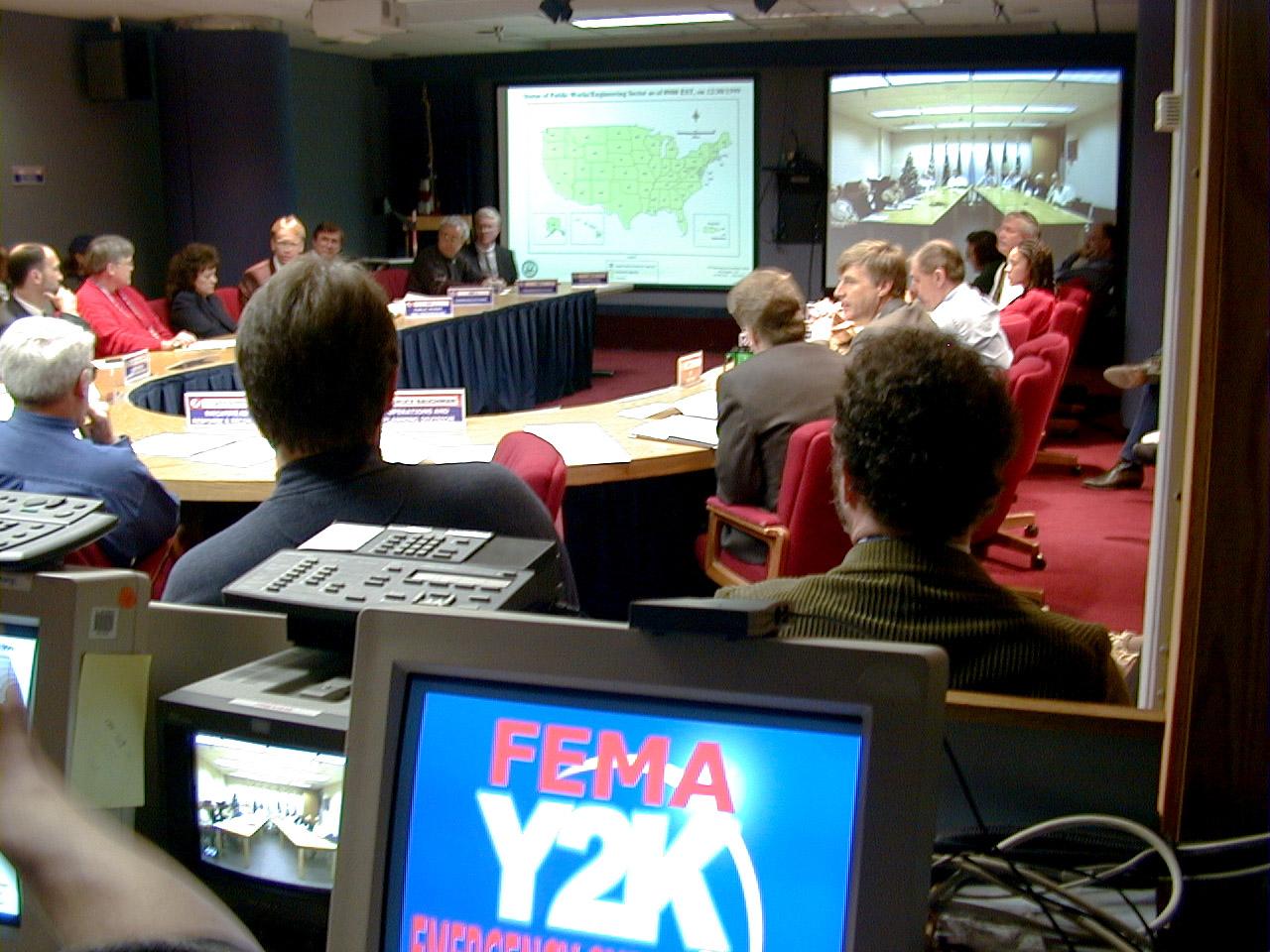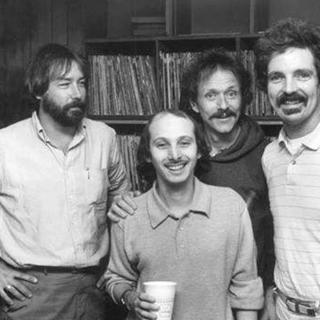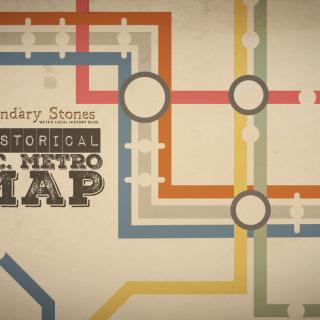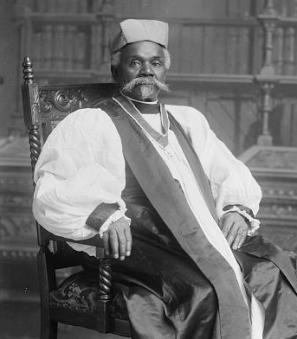Metro Squashes the Y2K Bug
“Armageddon is not coming. The sky is not going to fall down.” [1]
—Jim Brown, Fairfax County Y2K Coordinator
In the midst of the final countdown to the new millennium at 11:59 p.m. on December 31, 1999, people were waiting for more than confetti to fly and the ball to drop. Eyes around the world were locked on computer systems to see if the technology would advance with the clock.
As news outlets had warned the public for months, the so-called Y2K bug was expected to affect, and potentially paralyze thousands of computer systems worldwide. According to CBS News:
“Some older computers were programmed to recognize dates in two-digit format, so the question emerges of what will happen when 1999—recognized by those computers as simply “99”— changes to 2000. Computers may malfunction and think the clock has been set back to 1900 instead of forward to 2000.”[2]
These older computers helped run countless vital systems, including those in hospitals, power grids, defense operations, and transportation.
So, as New Year’s Eve celebrations approached, public transportation authorities of major cities throughout the world, including the Washington Metropolitan Area Transit Authority (WMATA), faced a monumental dilemma: What would happen if the computer systems that ran the trains froze at the exact moment that Metro would have to transport a larger-than-usual crowd?
By the time the ball dropped, the hunt for a solution to this problem had been in progress for months. In January 1999, WMATA’s Chief Information Officer, Donald McCanless, announced that Metro had chosen the Bethesda, Maryland-based information systems company, Computer Technology Associates (CTA) to provide WMATA with “Year 2000 inventory and vendor management of its information technology and embedded systems for Y2K compliance.”[3] CTA’s $300,000 contract with WMATA would attempt to ensure that all buses, subway trains, and transit stations were Y2K compliant by early 1999. McCanless said of the partnership:
“While WMATA has been hard at work on Y2K issues for some time, we are pleased that CTA, as a leader in the industry on this issue, will bring additional expertise and staffing to the WMATA Y2K challenge. CTA’s transportation experience, along with their knowledge of embedded and real-time systems, provide the Authority with additional confidence in meeting our priorities of safety, uninterrupted passenger service and uninterrupted business operations.” [4]
Tom Velez, CEO of Computer Technology Associates, echoed McCanless’s confidence and optimism in the computer system fixes:
“CTA’s goal is to ensure the Washington Metropolitan Area Transit Authority is on the right track towards Y2K compliance. Our expertise in complex project management and embedded systems compliance will help lay the ground work for making sure the Washington Transit Authority has a comfortable ride into the next century.” [5]
In the process of ensuring that WMATA would be Y2K compliant by New Year’s Eve, CTA assessed more than 1,800 WMATA PC computers, as well as the software conversion system for WMATA’s fare collection system.[6]
In September 1999 the Senate Special Committee on the Year 2000 released an assessment it had completed on all vital DMV area Y2K system compliances. At that time, Metro reported that it was “still working on the issue but [had] determined that Y2K [would] not pose a safety threat to bus or rail operations."[7]
Ironically on the 24th of the same month, Washingtonians got a taste of what a Y2K bug might cause. For the first time in Metro’s 23 year history, the $20 million central computer system that monitors trains’ locations throughout the Metro system, crashed at about 3:20 a.m., causing delays as long as 50 minutes at the beginning of morning rush hour.[8] Though Metro officials assured the public that the malfunction was not Y2K related, the situation left riders feeling hesitant about Metro’s preparedness for the new millennium.
Metro, however, continued work on making its systems Y2K compliant, and near the end of December, announced a precautionary measure it would take on New Year’s Eve, when as many as 750,000 riders were expected on the rails after midnight. At 11:55 p.m. on December 31st, WMATA would stop all Metrorail cars at station platforms, and then restart them a few minutes after the clock struck 12. Ray Feldmann, Metro spokesman, said of the plan, “This is just an extra precaution. We want the trains sitting safely in a station when the midnight hour occurs.”[9]
On the morning of December 31, 1999, subway trains started moving at 5:30 a.m. While WMATA had originally planned to open at 5:30 a.m. that morning, earlier in the month, the federal government had refused to help pay the $1.8 million needed to transport the expected record number of New Year’s Eve passengers, therefore forcing Metro to announce an 8 a.m. start time.[10] At the last minute, however, D.C. Mayor Anthony Williams made a financial offer that allowed Metro to move the start time back up to 5:30 a.m. Since closing time had been previously extended to 3 a.m. to accommodate revelers, New Year’s Eve 1999 would be the longest day of service in Metro’s history at 21.5 hours.[11]
As it got closer to midnight, Washington’s New Year’s Eve extravaganza turned into a party worthy of being the millennium’s last. More than 300,000 people filled the Mall to enjoy music and picnics, all “with the Washington Monument and the Lincoln Memorial as historic backdrops.”[12] With 30 seconds to go before midnight, a torch was lit on the Lincoln Memorial side of the Reflecting Pool which set off a stream of fireworks down the length of the water. As the New Year was counted in with flashes of light rising up the 555-foot Washington Monument, WMATA parked nearly 300 buses near rail stations throughout the Metro system to ensure that transportation would be a go in the event of a Y2K caused system malfunction at midnight.[13]
At last, the anxiously awaited turn to 2000 was marked with colorful fireworks exploding over the Mall and Potomac River. At that same moment, eyes turned to computers, where officials were relieved to see that CTA’s fixes had made Metro properly immune to the Y2K bug. Trains were off and running again minutes after midnight, continuing for hours through what WMATA later called “an uneventful day carrying passengers to and from the millennium celebrations on the Mall and elsewhere.”[14]
Although there was a significant amount of worry and uncertainty, it turned out that if computers were affected by Y2K at all, the incidents mainly occurred sometime after January 1, and were minor inconveniences compared to the catastrophic, and even apocalyptic, situations that some predicted. Thanks to WMATA’s and CTA’s anticipatory and vigilant preparation, Metro was well protected against the Y2K bug, assuring Washingtonians that they could party like it was 1999 one last time.
Footnotes
- ^ “Y2K Bug Won’t Bring Armageddon, Say Counties.” Washington Business Journal. Accessed June 18, 2018. https://www.bizjournals.com/washington/stories/1999/01/25/focus2.html.
- ^ CBSNews.com staff AP. 1999. “Is Mass Transit Ready For Y2K?” October 7, 1999. https://www.cbsnews.com/news/is-mass-transit-ready-for-y2k/.
- ^ “Washington Transit Authority Selects Computer Technology Associates For Smooth Transport into New Millennium. - Free Online Library.” 1999. January 19, 1999. https://www.thefreelibrary.com/Washington+Transit+Authority+Selects+Com….
- ^ Ibid.
- ^ Ibid.
- ^ Koprowski, Gene. 1999. “As Y2K Nears, Many Still Unprepared.” The Washington Post (1974-Current File); Washington, D.C., June 6, 1999, sec. Technology Employment. https://search-proquest-com.library.access.arlingtonva.us/hnpwashington….
- ^ Chandrasekaran, Rajiv, Eric Lipton, and Stephen Barr. 1999. “A Glitch That Won’t Steal New Year’s?: Big Corporations, U.S. Agencies Predict Y2K Disruptions Will Be Limited and Local.” The Washington Post (1974-Current File); Washington, D.C., September 22, 1999. https://search-proquest-com.library.access.arlingtonva.us/hnpwashington….
- ^ Layton, Lyndsey. 1999. “Computer Failure Puzzles Metro: Opening Delayed, Rush Hour Slowed.” The Washington Post (1974-Current File); Washington, D.C., September 25, 1999, sec. Metro. https://search-proquest-com.library.access.arlingtonva.us/hnpwashington….
- ^ Fehr, Stephen C. 1999. “Area Amasses Workers, Supplies, Plans for Y2K.” The Washington Post (1974-Current File); Washington, D.C., December 19, 1999. https://search-proquest-com.library.access.arlingtonva.us/hnpwashington….
- ^ Layton, Lindsey. 1999. “Metrorail Running Early Today After All: Mayor Offers Funds For Service at 5:30.” The Washington Post (1974-Current File); Washington, D.C., December 31, 1999, sec. Metro. https://search-proquest-com.library.access.arlingtonva.us/hnpwashington….
- ^ Ibid.
- ^ Levine, Susan. 2000. “A Capital Celebration: Huge Crowd Revels in Festival of Light, Sound.” The Washington Post (1974-Current File); Washington, D.C., January 1, 2000. https://search-proquest-com.library.access.arlingtonva.us/hnpwashington….
- ^ “Metro_history.Pdf.” Accessed June 8, 2018. https://www.wmata.com/about/upload/history.pdf.
- ^ Ibid.








![Sketch of the mythical fuan by Pearson Scott Foresman. [Source: Wikipedia]](/sites/default/files/styles/crop_320x320/public/2023-10/Goatman_Wikipedia_Faun_2_%28PSF%29.png?h=64a074ff&itok=C9Qh-PE1)












